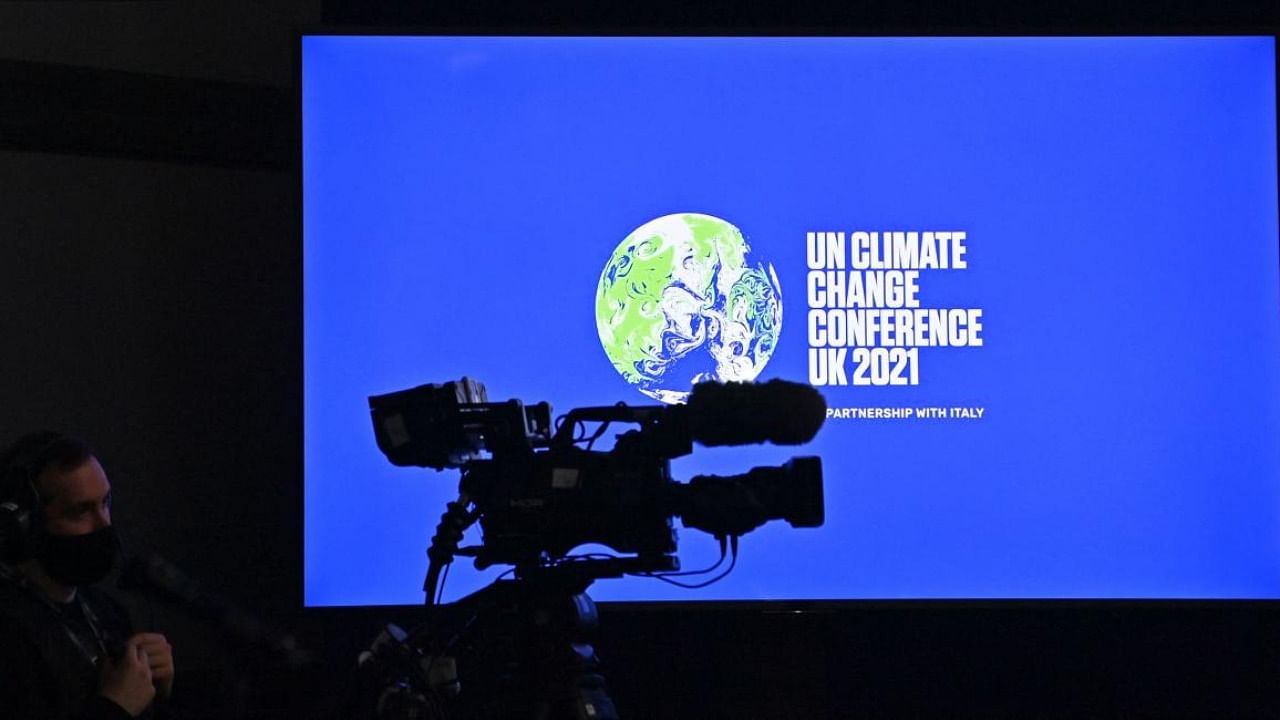
For all the weeks of negotiation and hard-headed diplomacy that go into the text of an international agreement, the words that result in the end aren’t a magic spell.
Whether the communique resulting from the Glasgow climate conference promises to “accelerate the phasing out of coal and subsidies for fossil fuels” (as initial drafts proposed) or instead to escalate “efforts towards phase-down of unabated coal power and phase-out of inefficient fossil fuel subsidies,” (in the softened language of the final agreement), it will barely change what the world’s big emitters do over the coming years.
At the same time, the governments that sign such agreements clearly do believe that words have a power of enchantment. Why else has it taken 26 meetings for a passage singling out fossil fuels to make it into the wording of a climate agreement? Language crystallizes the more important reality that’s emerging away from the conference halls in power stations, industrial facilities and government offices around the world. In its modest way, it also helps edge that process along.
The most important of all those softening phrases is almost certainly “inefficient fossil fuel subsidies.” Although nearly every kilowatt of fossil energy on the planet is by definition inefficient (because it doesn’t pay the cost externalities that its pollution levies on human health and the global climate), that hoary formula is so broad that it gives a political excuse for almost any support.
There's a great deal that can be justified in the name of efficiency. The difference between a country with a stable and secure supply of energy and one without it is the difference between China and sub-Saharan Africa, or Glasgow in the 18th century versus the 21st century. Even the minor energy crises we’ve seen in China, India and Europe’s coal and gas markets in recent months are an indicator of the vast social value of a functioning energy system. An efficient subsidy goes about providing it in the cheapest possible way, however — and that calculation has changed drastically.
At the time of the Paris climate conference in 2015, renewables were the most affordable way of providing new power generation in only a handful of European countries, and weren’t competitive with existing fossil power anywhere. Now, they’re undercutting even generators that are already connected — one reason we’ve seen the likes of Indonesia, Vietnam, Poland and South Korea sign up to end the coal-fired electricity that they’ve been dependent on.
The same is true with transport. BloombergNEF, one of the more bullish forecasters for electric vehicles, estimated in 2016 that global sales would grow to 2 million in 2020. In practice, the figure was 3.1 million, and is forecast to rise to 5.6 million this year. The cost of owning an EV in many major markets is already lower than the equivalent petroleum-powered car, and sales as a share of the total this year have already hit 12.8 per cent in China and 17 per cent in Europe.
Other areas will follow in the years ahead. Green steel, regarded as little better than science fiction a few years ago, ought to be competitive with the conventional product at the sort of carbon prices now prevailing in the European Union. Green hydrogen, until recently another pie-in-the-sky notion, is already seeing 213.5 gigawatts of planned projects, roughly equivalent to the power generation capacity of Germany. In industry after industry, the emerging reality is that fossil fuels are no longer as necessary to modern life as we thought they were. The cheapest and most efficient route to energy security is zero-carbon.
Some things, however, remain the same. Technological change means swathes of India and China’s coal-fired power stations are already uneconomic — but the wind and solar plants to replace them must first get built, which will require financial and political change as well. Coal India Ltd., the world’s largest miner of solid fuel, in some ways resembles a state within a state, operating hospitals, schools and colleges and employing more than 250,000 people. Indian Railways, the vast state-owned rail operator, can only provide cheap transport for passengers because it levies a hefty charge on coal transport.
To talk about this only in terms of subsidies in some ways understates just how deeply fossil fuels are integrated into the structure of their most avid producers and consumers. These are not simply outgrowths, but arteries of the economy through which finance, jobs, politics and influence flow. The surgery necessary to remove them won’t be straightforward.
The $8.5 billion package announced in Glasgow to speed South Africa’s transition away from coal provides one model for how this could be done — but it’s far from certain whether it will succeed, and that one country accounts for less than 3 per cent of the emerging world’s solid fuel consumption. India has already put a $1 trillion price tag on the funds it needs this decade to accelerate its energy transition.
Something must be done, though. The costs of subsidizing fossil fuels go up with each passing year, making it harder to abandon them even as their damage accumulates. In a world where annual energy investment runs to $1.9 trillion or so a year, the problem isn’t that funds are lacking, but that they’re going to the wrong places.
With developing nations missing out on zero-carbon power for a lack of investment capital, even as they’re buffeted more and more by the shocks of climate change itself, the greatest inefficiency isn’t in the subsidies that undergird our energy systems. It’s the loss of human potential that we will suffer if we fail to provide the planet with the clean, cheap energy that’s now within our grasp.
Check out DH's latest videos